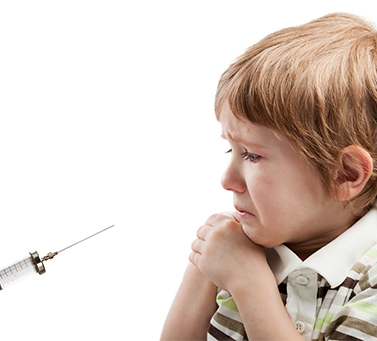
If vaccines are truly effective at preventing sickness, it is only logical to expect vaccinated kids to be healthier than their unvaccinated peers. In fact, a desire to keep their kids healthy is the reason many parents blindly adhere to the prescribed vaccine schedule. At the same time, however, we’ve been hearing more than ever about kids with allergies, asthma, autism, and learning disabilities. Is this just a coincidence?
The short answer is no, according to a groundbreaking study from Jackson State University that discovered that unvaccinated children have significantly fewer health problems than those who are vaccinated. The study, which was the first of its kind, looked at more than 600 homeschooled children across four states between the ages of 6 and 12. A total of 261 unvaccinated children were compared to 405 children who were either partially or fully vaccinated, and their overall health was assessed. The findings were published in the Journal of Translational Sciences.
The fact that unvaccinated children have fewer health problems is incredible on its own, but what is really remarkable is just how big the difference is between the overall health of the two groups. In fact, some of the findings are absolutely mind-blowing. For example, vaccinated kids were an incredible 30 times more likely to be diagnosed with hay fever (allergic rhinitis) than their unvaccinated peers and 22 times more likely to have allergies so severe that they require medication.
In addition, kids who get vaccines were found to be 300 percent more likely to have a diagnosis of Attention Deficit Hyperactivity Disorder and 340 percent more likely to have suffered pneumonia. Vaccinated kids were also 300 percent more likely to have had an ear infection and 700 percent more likely to have gotten surgery for the insertion of ear drainage tubes. Ear infections now affect four fifths of all of our nation’s children before they turn 3 and are a top reason for pediatrician visits and antibiotic prescriptions in this age group.
Despite repeated reassurances from “experts” that vaccines do not cause autism, vaccinated kids were three times as likely to have a diagnosis on the Autism Spectrum than their unvaccinated peers. Vaccinated kids were also 2.5 times more likely to have been diagnosed with any type of chronic illness than unvaccinated kids. This probably explains why 43 percent of American children – 32 million in total – have at least one of 20 chronic illnesses and are four times more likely than their parents to have one. Why is this study so unusual?
It’s hard to believe that a study like this has never been carried out before, but the problem is that nearly all American children have been vaccinated, which means there aren’t a lot of control subjects available to study long-term effects. Comparing general American children to those from places like Amish communities, for example, where vaccines are not routinely given, is problematic because of the other variables that come into play. However, this study compared homeschoolers to homeschoolers, which is not only an equal comparison but also useful because homeschoolers as a population actually match the profiles of families in our country overall.
Despite being unprecedented and yielding a lot of surprising and useful data, this study probably won’t get a lot of publicity. Vaccines are simply too profitable, which helps explain why children today receive 50 doses of 14 vaccines by their sixth birthday. The pharmaceutical industry is willing to go to great lengths to defend and preserve this huge moneymaker, and they’ll probably do their best to make sure most people never hear about these shocking findings.